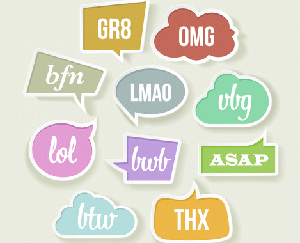In-Depth Tips from Dr English
 Dr English is the resident expert in language and communication training at Workplace English Training E-Platform (WETE). The informative and often in-depth articles below will help more advanced learners to understand and improve various aspects of their English, especially the English they need for work. You can read Dr English's tips on your PC, laptop or mobile device. These articles are only available for members of WETE. If you would like to subscribe and receive email notifications of future postings, please subscribe by clicking the Newsletter link above.
Dr English is the resident expert in language and communication training at Workplace English Training E-Platform (WETE). The informative and often in-depth articles below will help more advanced learners to understand and improve various aspects of their English, especially the English they need for work. You can read Dr English's tips on your PC, laptop or mobile device. These articles are only available for members of WETE. If you would like to subscribe and receive email notifications of future postings, please subscribe by clicking the Newsletter link above.
Internet Slang |
09 Aug 2022
|
|
Some say that nothing more than the Internet has been responsible for the evolution of the English language. Words, phrases, expressions and abbreviations are continually coined and promulgated. Read the following passage that is typical of an Internet user nowadays. “So, I was out surfing the Web. You know, lurking around a chat room and reading my favourite ezines when I met this user and we blabbed away about her blog and the number of hits it gets. The next thing, this newbie logs on and starts asking loads of questions. I didn’t mind as I am into Netiquette but after a few minutes he started to flame about all these cool domain names he owns. I realized he was a cyber squatter so I cut the conversation quickly.”
Such terms typically originated with the purpose of saving key strokes when sending messages and using chat rooms or forums. Soon after a new Internet expression is coined, the abbreviated surfaces. Avid Internet users are responsible for spreading these new terms but on occasions they take time to be accepted and used by the wider Internet community. You may know of or may use some of the following common abbreviations: ppl - people pls /plz - please brw – by the way tbh – to be honest bbp – banned by parents Many cultures have embraced the Internet as a dominant past time, just like in Hong Kong. This being the case, users should maintain clear uses of informal Internet slang and correct modern English.
Do you know the full form for the following popular Internet abbreviations? kiss ttyl noyb brb oic Answers kiss – keep it simple silly ttyl – talk to you later noyb – none of your business brb – be right back oic – oh I see |
|||||||||||||||||||
Subscribe to Workplace English Training E-Platform
Improve your business English through the world’s best and most comprehensive online platform

INCLUDES:
 Business English level test
Business English level test
 2000+ online lessons/interactive exercises
2000+ online lessons/interactive exercises
 My Learning Path module (members build their own courses from our content).
My Learning Path module (members build their own courses from our content).
 My Courses module (members can select from a number of course options).
My Courses module (members can select from a number of course options).
 Database of sample business documents
Database of sample business documents
 Library of 2600+ downloadable offline training resources
Library of 2600+ downloadable offline training resources
 Podcast lessons, tips, ebook training guides, fun stuff
Podcast lessons, tips, ebook training guides, fun stuff
 Student Helpline
Student Helpline
Key Benefits
- Focus only on the English you need for work.
- Learn at your own pace in your own time.





 Here's a post about internet slang. You may learn a few new word and phrases.
Here's a post about internet slang. You may learn a few new word and phrases.